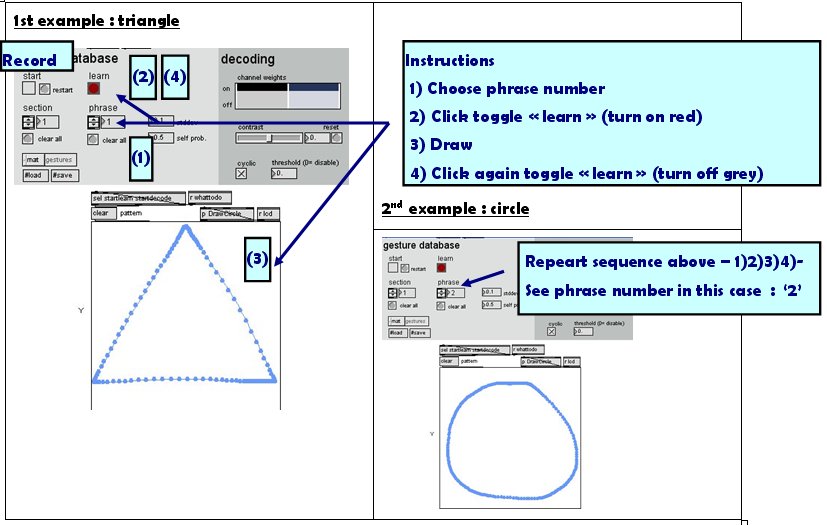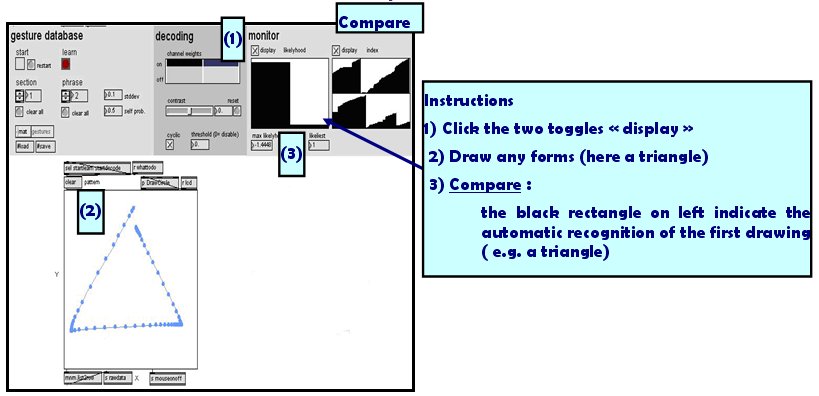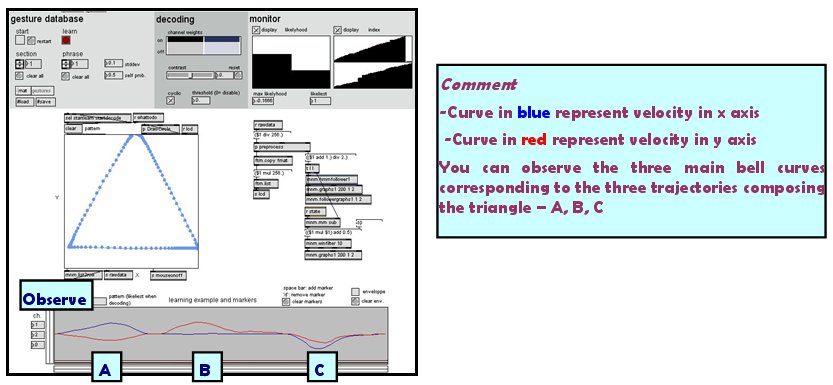(→MNM tutorial) |
|||
| Line 1: | Line 1: | ||
| − | == | + | == Gesture Follower tutorial == |
| − | |||
| − | |||
| − | |||
| + | The gesture follower is a set of Max/MSP modules integrated in the toolbox MnM of the library FTM. The development of the gesture follower is pursued with the general goal to compare in realtime a gesture with prerecorded examples. The comparison mechanisms we implemented, following and recognition are further explained in the next subsections. | ||
== Workspace : overview == | == Workspace : overview == | ||
Revision as of 09:57, 29 January 2007
Contents
Gesture Follower tutorial
The gesture follower is a set of Max/MSP modules integrated in the toolbox MnM of the library FTM. The development of the gesture follower is pursued with the general goal to compare in realtime a gesture with prerecorded examples. The comparison mechanisms we implemented, following and recognition are further explained in the next subsections.
Workspace : overview
Get an overview of the interface functions.

1st STEP : Record gestures
Let’s start with two simple drawings : a triangle and a circle.

2nd STEP : Compare
Draw a figure and then see how similar it is with your two referent drawings.

3rd STEP : Observe
Pay attention to the curves below. They represent the velocity in X and Y axis of the mouse trajectories. That give a useful temporal information on how you realize your drawing.

Connection Avec EyesWeb XMI
EyesWeb XMI, the open platform for real-time analysis of multimodal interaction, can be connected to Max/Msp throughout the OSC protocol (Open Sound Control). OSC is open, message-based protocol which was originally developed for communication between computers and sythesizers (cf. wiki).
--Glova 09:16, 29 January 2007 (CET)